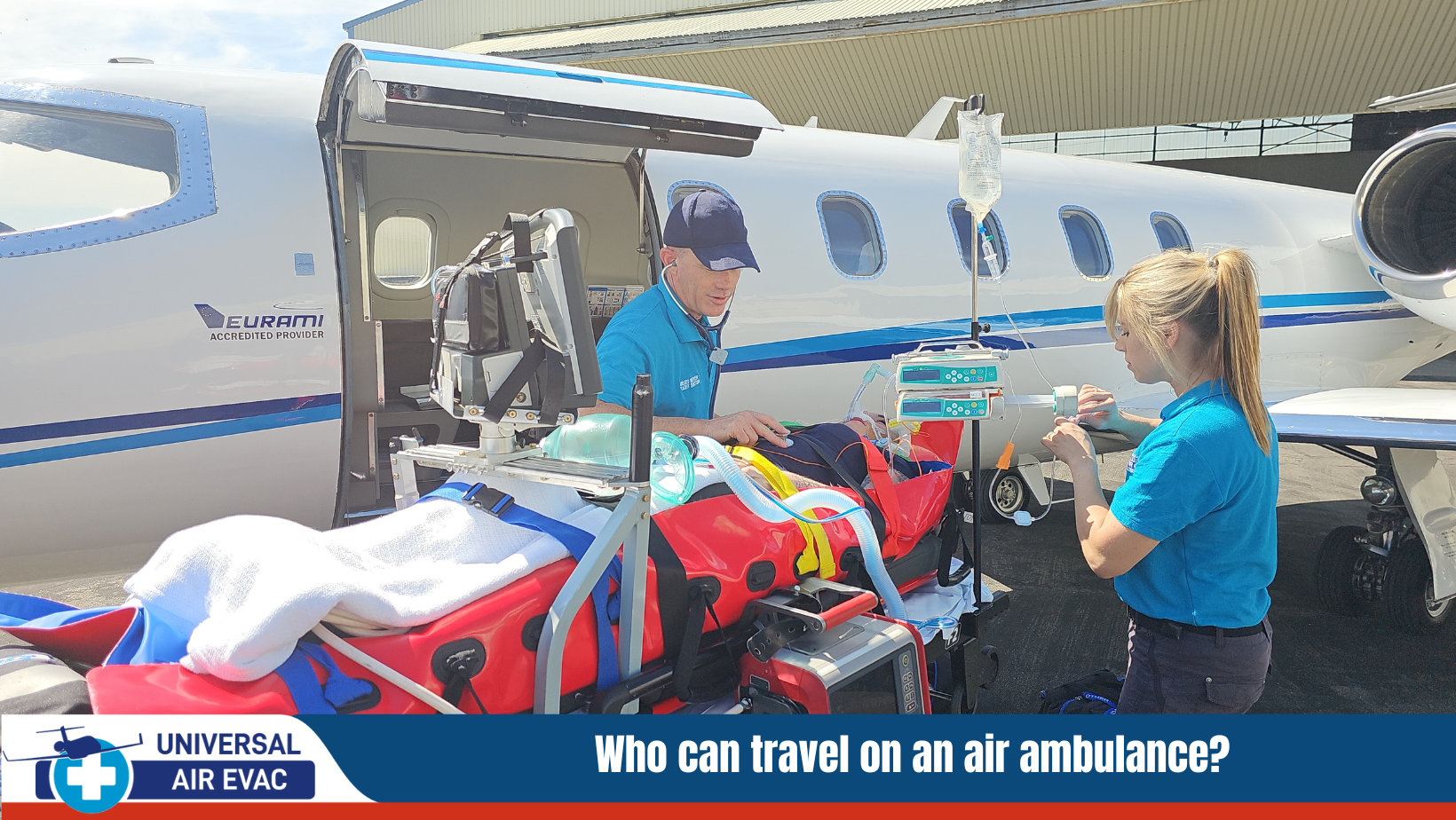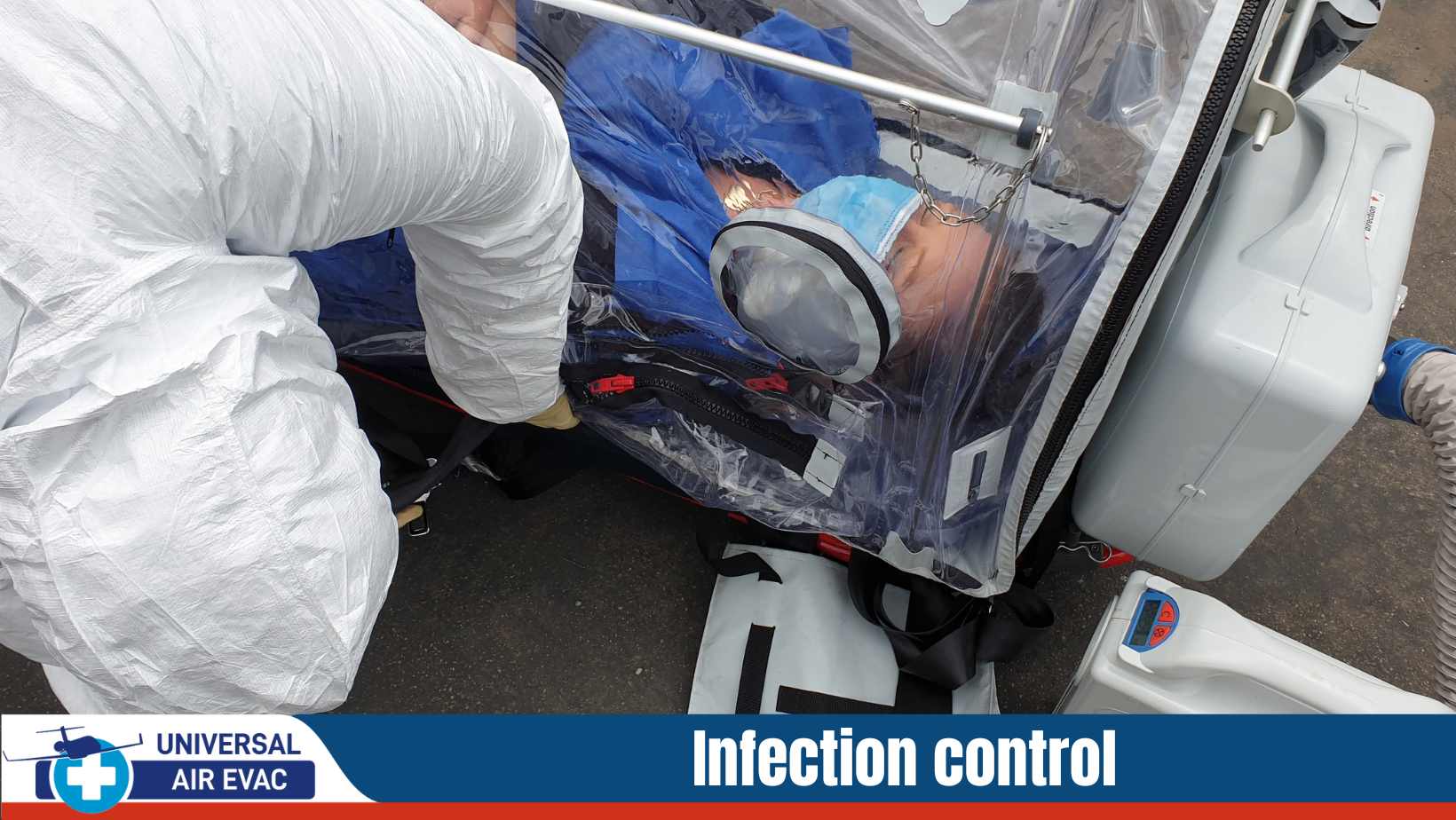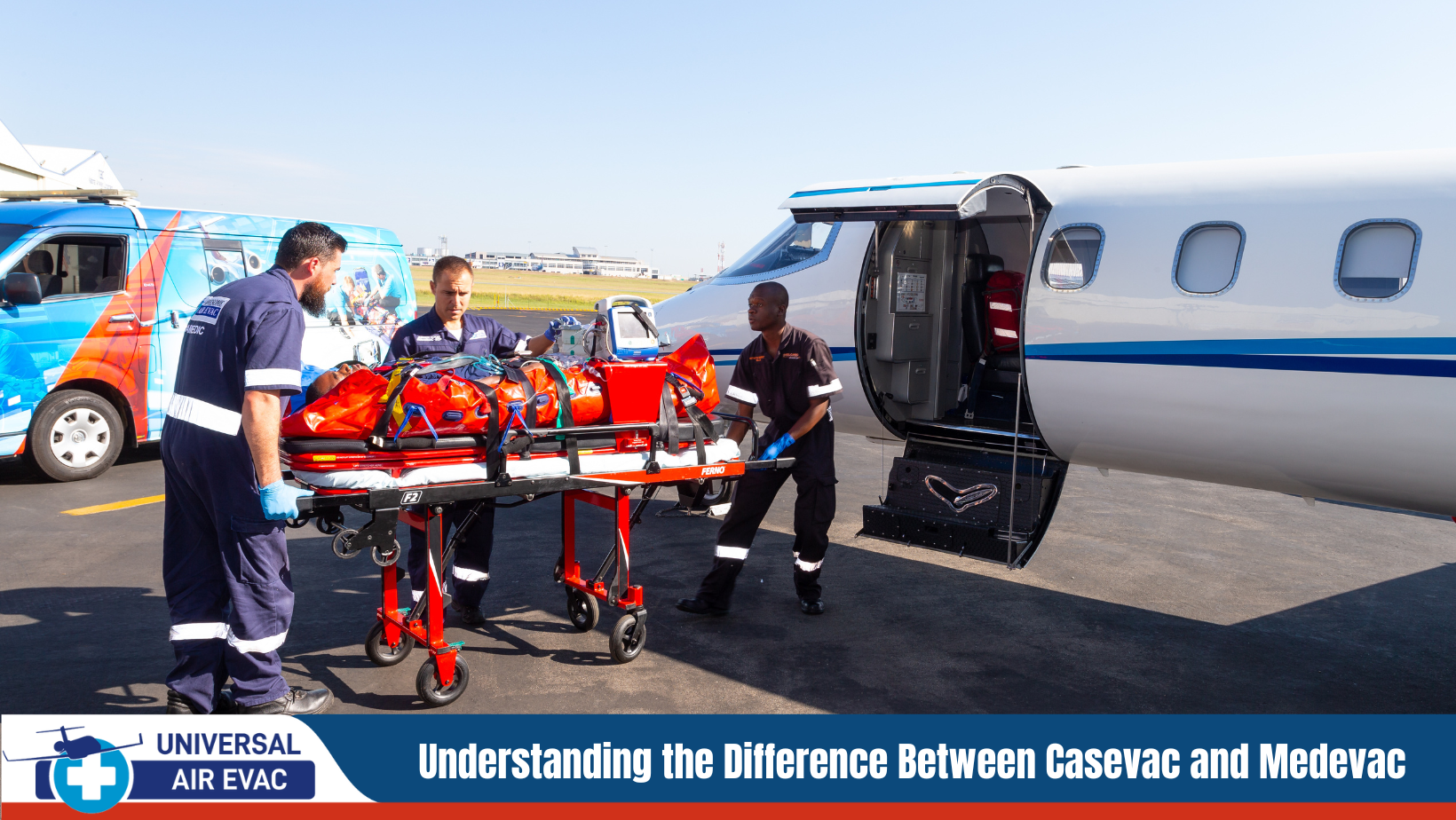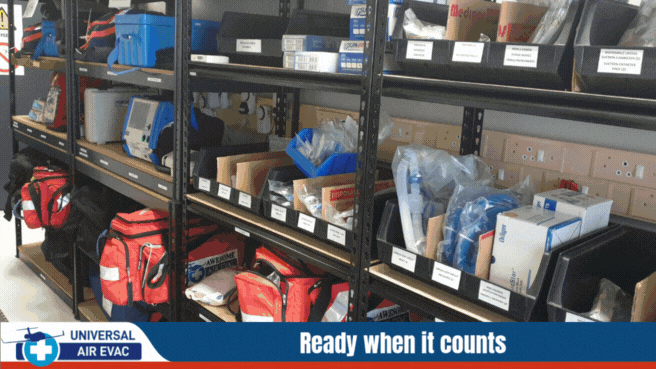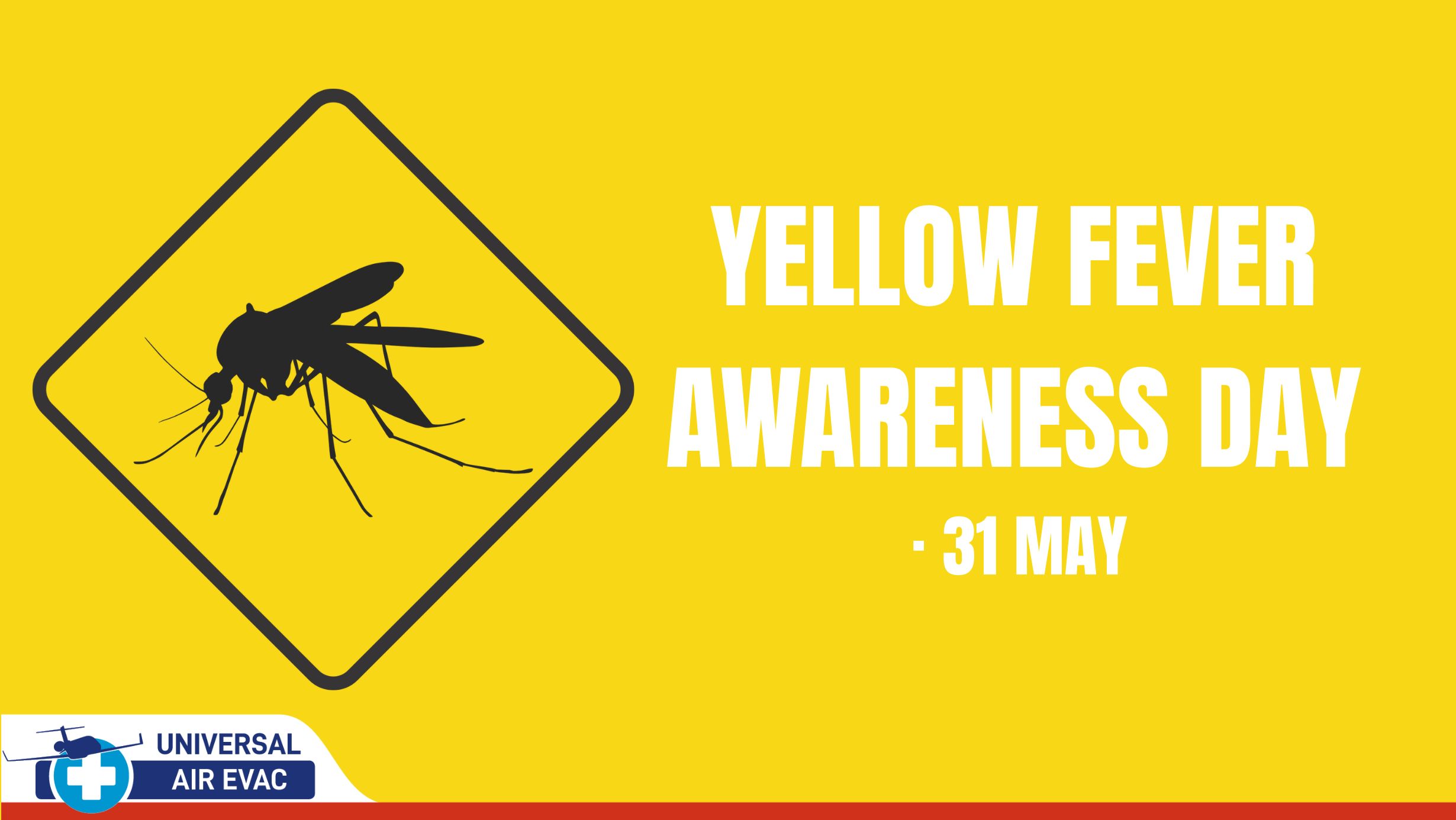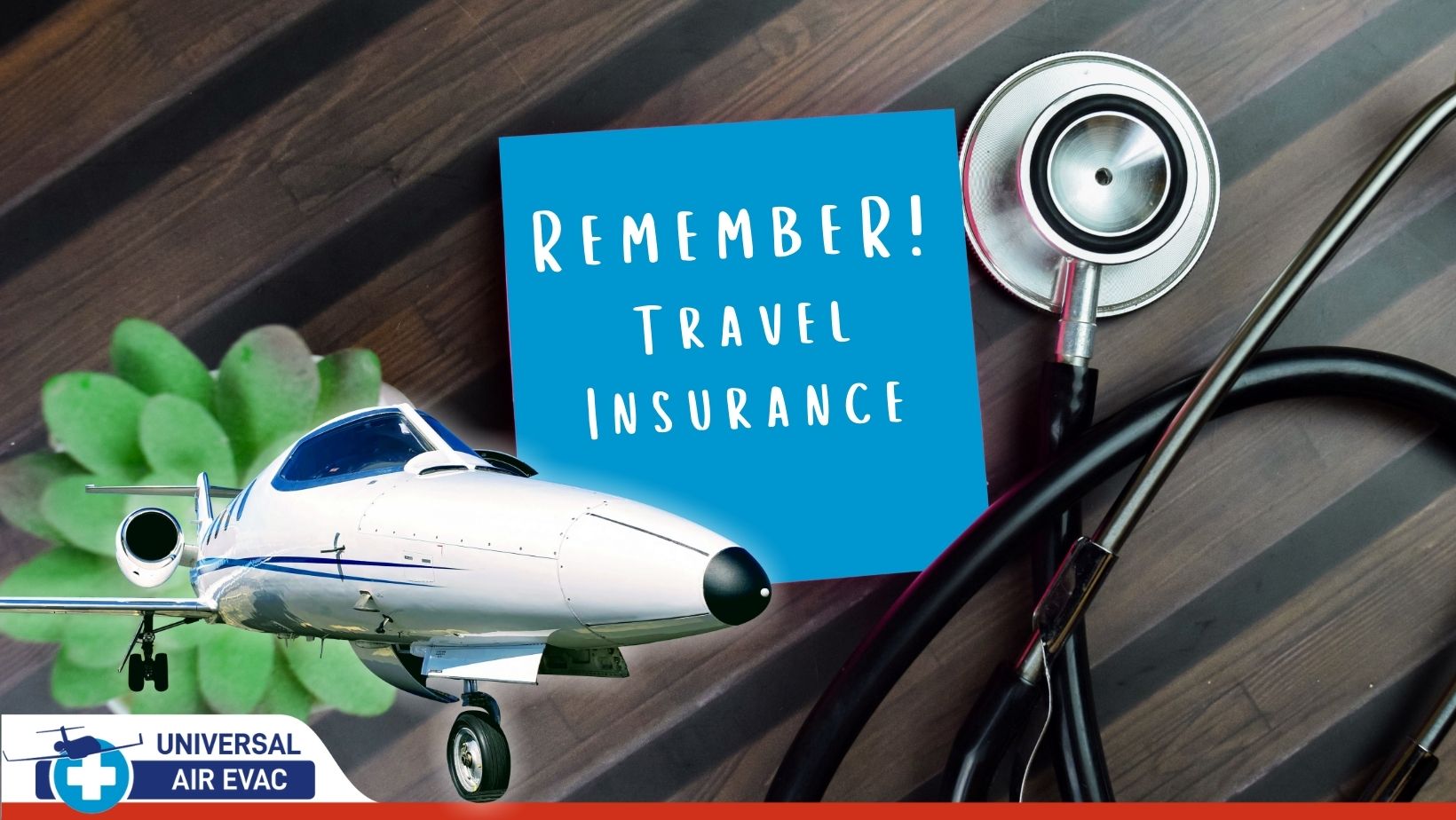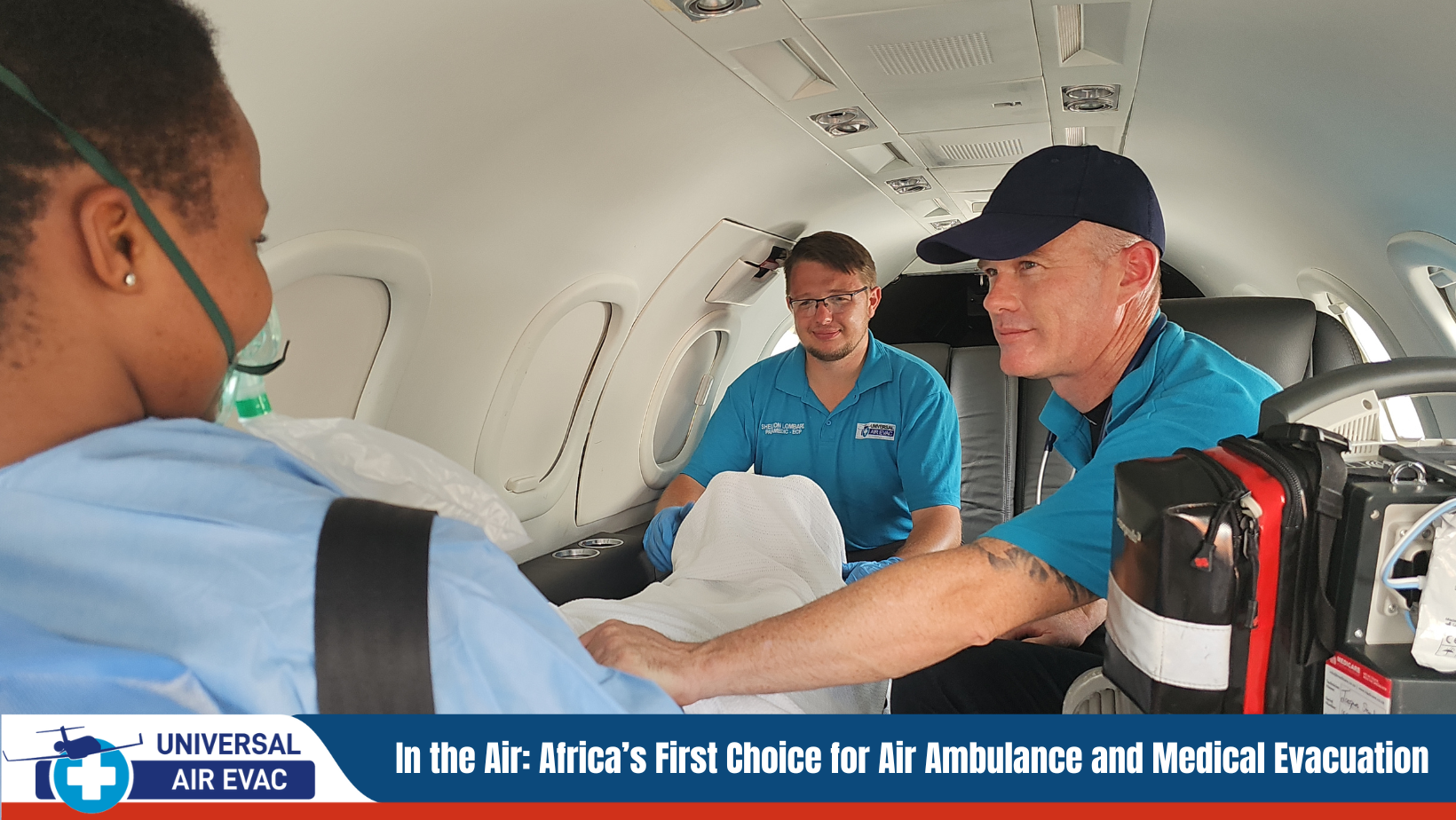
When time, distance, and geography stand in the way of urgent medical care, Universal Air Evac provides life-saving solutions. As Africa’s leading air ambulance service, we deliver safe, reliable, and clinically advanced emergency air transport across South Africa, the African continent, surrounding islands, and into Europe and the Middle East.
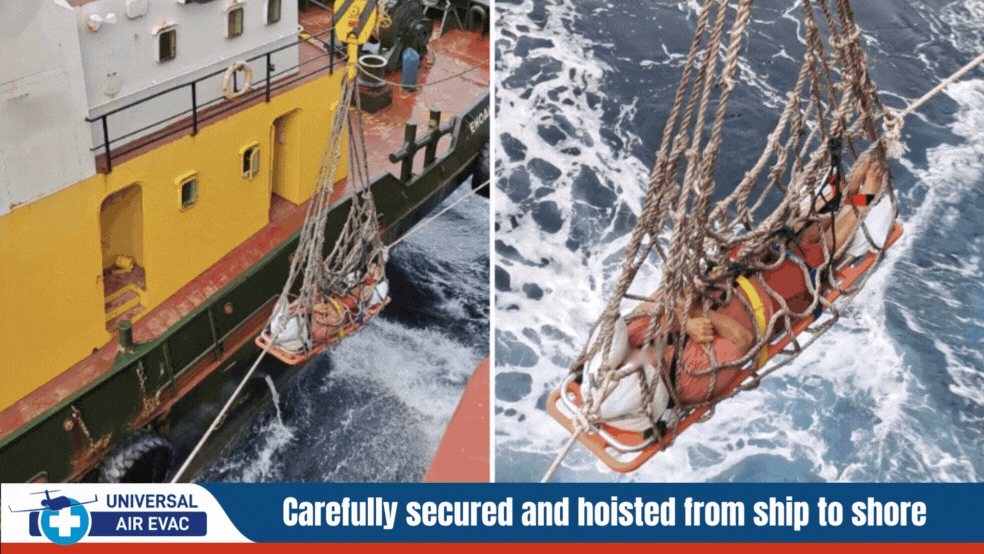
Case Study: Africa
When a crew member cleaning the hold of a cargo ship fell nearly ten metres onto scaffolding, the outcome could have been devastating. He suffered multiple fractures, including spinal injuries and broken ankles – serious trauma requiring urgent medical attention and a coordinated international air ambulance evacuation.
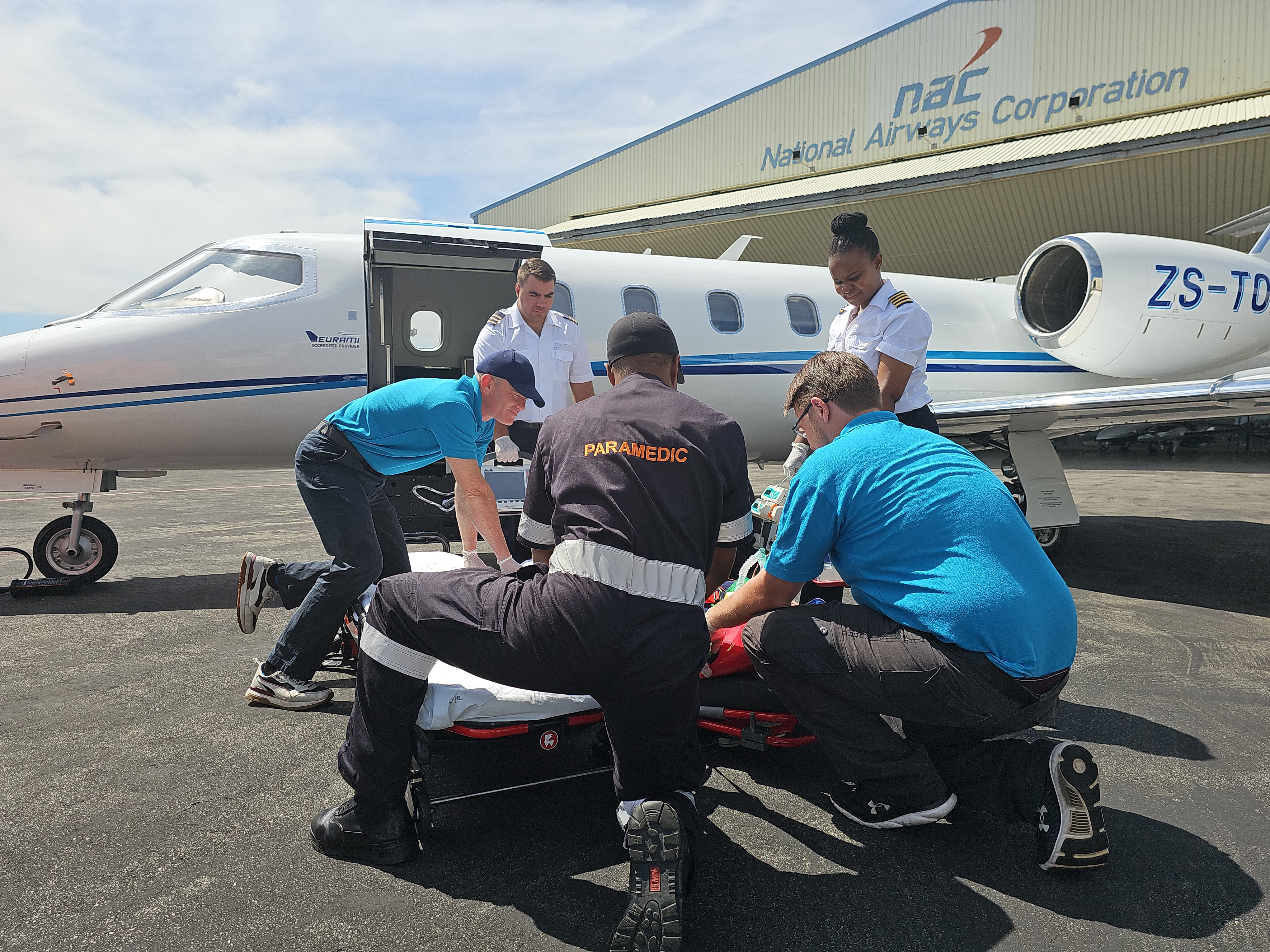
Case Review
In 2024, Universal Air Evac successfully conducted a repatriation flight for a 2-year-old child. The journey began in Dar es Salaam, Tanzania, and concluded in Stockholm, Sweden, where the patient was safely handed over to receiving medical personnel.


